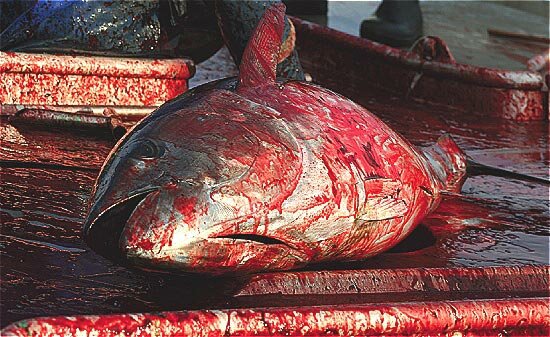It's a known phenominon and something I've observed myself whist collecting for charities: The people who are most willing to give money for a cause are the people who have the least to spare. Knowing that, I thought it would be a good idea to give some publicity to the sites that allow you to donate for free.
How it works
Most of these sites are click to donate sites.
When you visit the site, you are shown a link or button (click here to [whatever your cause wants to do]). When you click this link, you are taken to a page with a thank you message and some sponsor advertising. The sponsors will pay for your donation in return for you looking at their adverts (you don't have to click them, the fact that you're on that page is enough). You can click once per day for each cause and your donation will be counted without you having to pay a cent of your own money. Pretty cool huh?
The sites:
Direct click sites:
You click on the link, snd they donate the money.
- Click to give: Help with breast cancer, hunger, literacy, rescued animals, child health and rainforest conservation.
- Care2: help with rainforest conservation, children, big cats, breast cancer, healthy smiles, pets seals, oceans, primates, global warming, stop violence and wolves. Also provides a daily action article or pettition to raise awareness of other issues.
- The Stop HIV Site: informative site dedicated to stopping the spread of HIV. Includes a click to give link.
Links pages:
links to hundreds more sites like these.
- thenonprofits.com
- freewebs.com
- charityclickdonation.com: This site has links but also hosts bulk click software that allows you to effectively click on several sites at once. Whilst this technology my seem convenient, it bypasses the advertising pages, so if too many people use it then it will become more difficult for charities to find sponsors for these pages. Please use it responsibly.
Slightly different:
freerice.com donates 10 grains of rice for each correct answer to a simple question. It requires a little more thought than the other sites, but it's still free and there is no limit to how much you can give in one day. It's not difficult - give it a go!
Wednesday, March 31, 2010
Tuesday, March 30, 2010
How to live on $2 a day
How do billions of people manage to live on just $2 per day? Apparently some of them manage much better than one would imagine.
I'm aware that this comes across as advertising, but it's an interesting sound clip. I will have to check out this book.....
I'm aware that this comes across as advertising, but it's an interesting sound clip. I will have to check out this book.....
Labels:
extreme poverty,
global poverty,
money,
poverty,
survival
Monday, March 29, 2010
More on Marine Reserves
Following on from my post about the decline of commercial fish species, here is Sylvia Earle's excellent TED Prize wish speech, sharing valuable information about the state of our oceans.
From TED.com:
Earle's work has been at the frontier of deep ocean exploration for four decades. Earle has led more than 50 expeditions worldwide involving more than 6,000 hours underwater. As captain of the first all-female team to live underwater, she and her fellow scientists received a ticker-tape parade and White House reception upon their return to the surface. In 1979, Sylvia Earle walked untethered on the sea floor at a lower depth than any other woman before or since. In the 1980s she started the companies Deep Ocean Engineering and Deep Ocean Technologies with engineer Graham Hawkes to design and build undersea vehicles that allow scientists to work at previously inaccessible depths. In the early 1990s, Dr. Earle served as Chief Scientist of the National Oceanographic and Atmospheric Administration. At present she is explorer-in-residence at the National Geographic Society.
"We've got to somehow stabilize our connection to nature so that in 50 years from now, 500 years, 5,000 years from now there will still be a wild system and respect for what it takes to sustain us."
- Sylvia Earle
From TED.com:
Earle's work has been at the frontier of deep ocean exploration for four decades. Earle has led more than 50 expeditions worldwide involving more than 6,000 hours underwater. As captain of the first all-female team to live underwater, she and her fellow scientists received a ticker-tape parade and White House reception upon their return to the surface. In 1979, Sylvia Earle walked untethered on the sea floor at a lower depth than any other woman before or since. In the 1980s she started the companies Deep Ocean Engineering and Deep Ocean Technologies with engineer Graham Hawkes to design and build undersea vehicles that allow scientists to work at previously inaccessible depths. In the early 1990s, Dr. Earle served as Chief Scientist of the National Oceanographic and Atmospheric Administration. At present she is explorer-in-residence at the National Geographic Society.
"We've got to somehow stabilize our connection to nature so that in 50 years from now, 500 years, 5,000 years from now there will still be a wild system and respect for what it takes to sustain us."
- Sylvia Earle
Labels:
fish,
global fishing industry,
marine reserves,
ocean,
overfishing,
sea,
Sylvia Earle,
TED
Sunday, March 28, 2010
Putting things in perspective
The Miniature Earth
If the entire world was reduced down to a village with 100 people and kept the proportions we have now, how would things be distributed? Watch the video to find out.
The Global Rich List
On a list of everyone on earth, arranged by income, where do you sit?
If the entire world was reduced down to a village with 100 people and kept the proportions we have now, how would things be distributed? Watch the video to find out.
The Global Rich List
On a list of everyone on earth, arranged by income, where do you sit?
Saturday, March 27, 2010
Overfishing and the problems it will cause

The global fishing industry is massively unsustainable. Some estimates put the global decline in fish stock at 90%. The best counter arguments that other scientists can come up with is that a) they didn't reflect local figures (which also show a decline) and b) it's actually only 70% or whatever massively too high but still lower than 90% number they've come up with today. The point is that fish numbers are declining. Fast. When we say 90%, we're talking about 90% in the last 50 years. The way things are going, every commercially harvested marine species will have crashed by about 2050.
And that's just fish in general.

Bluefin tuna is as endangered as the white rhino, but it is still being hunted to extinction. If it was gorillas that were being eaten then thousands of people would be up in arms about it. But it's not. Fish are not cute, they're not seen as intelligent and they don't look like us. We can't see them, so we don't notice them declining. Out of sight, out of mind. And so it continues. Of course, the big companies aren't helping. Japan is alleged to have traded donor aid promises for votes to stop CITES from protecting tuna, and Mitsubishi is stockpiling frozen fish so that they can make money when the extinction of the species pushes prices up. All in all, things are not looking good.
Fish farming is not the answer people like to pretend it is. Farmed fish are fed on wild fish. It takes more fish to feed the farmed fish than what you get at the end of it.
What you can do:
- Find out more - knowledge is power
- Stop eating tuna
- boycott Mitsubishi
- Look for the Marine Stewardship Council (MSC) label on all fish products.
Find out more:
- The End of the Line: an excellent documentary about the current state of the fishing industry
- CITES failure to act (also here and here)
- WWF pages on threatened marine species
- Greenpeace and wikipedia articles on overfishing
Labels:
activism,
collapse,
ecology,
endangered,
fish,
ocean,
overfishing,
sea,
tuna
Subscribe to:
Posts (Atom)
